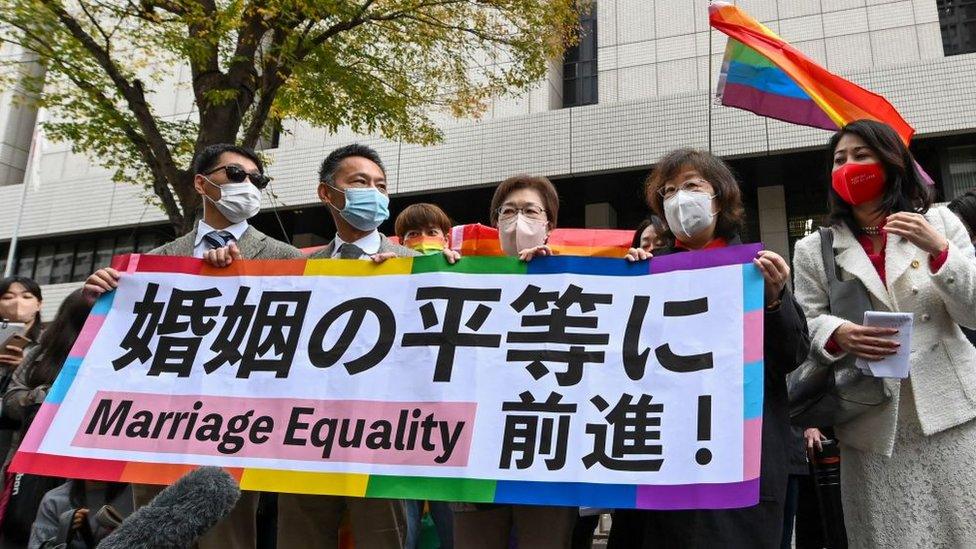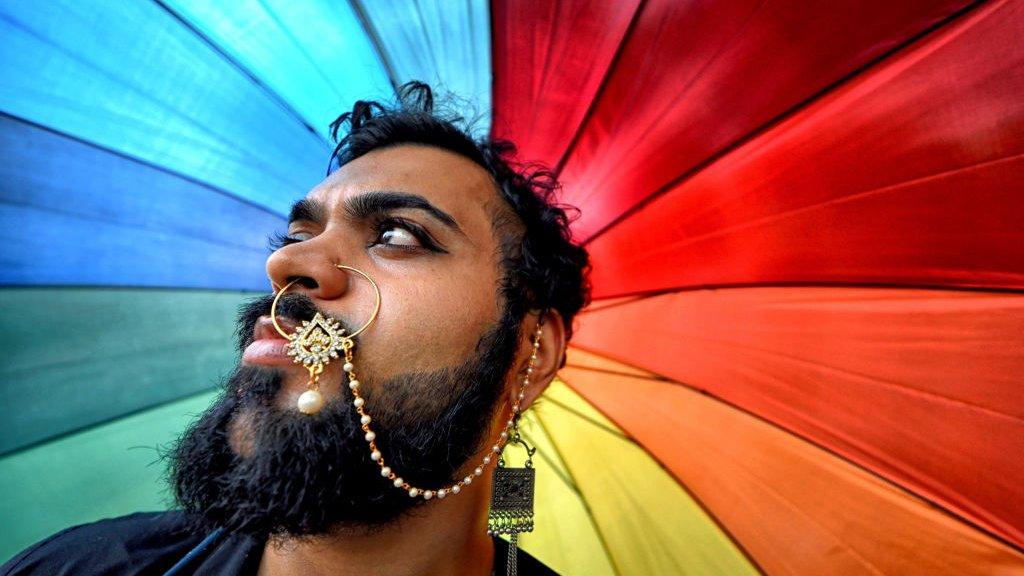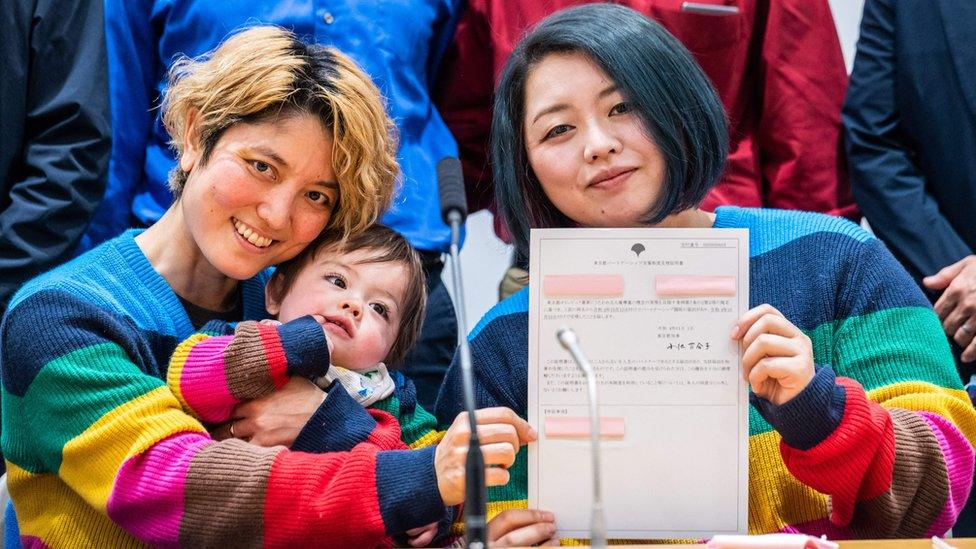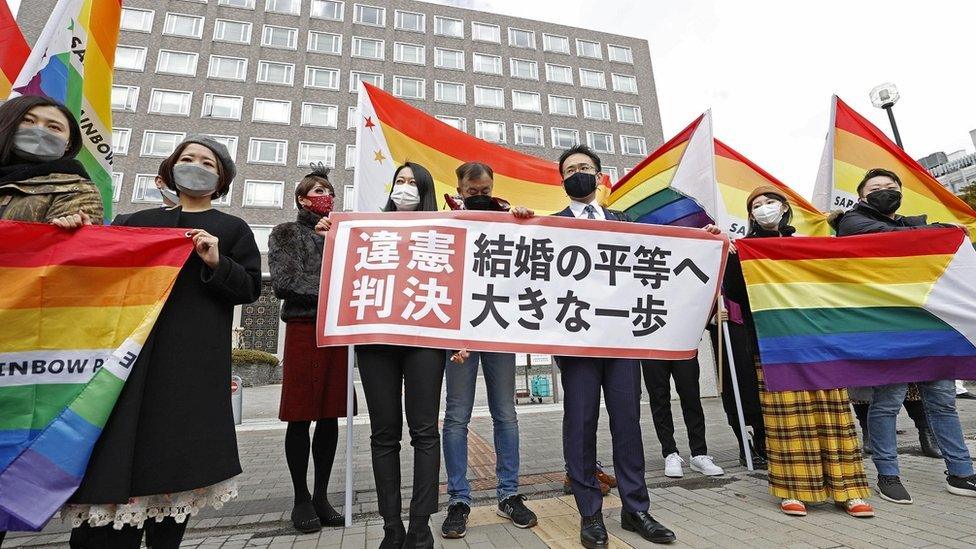Japan court upholds ban on same-sex marriage but raises rights issue
- Published

Same-sex marriage campaigners welcomed the ruling despite the ban being upheld
A Tokyo court has upheld a ban on same-sex marriage in Japan, but also said that the ban was a violation of human rights.
The compensation case was brought by four couples who claimed the law was discriminatory.
Japan is currently the only G7 nation that does not recognise same-sex marriage.
Campaigners have welcomed the ruling as an indication to the government that it needs to change the law.
"This is actually a fairly positive ruling," said Nobuhito Sawasaki, one of the lawyers involved in the case.
"While marriage remains between a man and a woman..., (the court) also said that the current situation with no legal protections for same-sex families is not good, suggesting something must be done about it," he told Reuters.
Prime Minister Fumio Kishida's ruling party has not disclosed any plans to change or review the legislation, although several senior members support same-sex marriage and union.
In Wednesday's ruling, the judge dismissed the case but also said that blocking gay couples from a legal pathway to marriage was irrational.
The lawyers and couples involved welcomed the ruling as "ground breaking", urging the government to promptly enact a law to mitigate the problem.
Currently, Japan's constitution says that marriage is defined by the mutual consent of both sexes.
The definition has real-world consequences for same-sex couples. They are not allowed to inherit each other's assets and are denied parental rights to each other's children. Even hospital visits can be difficult.
"Both heterosexual and same-sex couples should be able to benefit equally from the system of marriage, as everyone is equal under the law," said Gon Matsunaka, head of the activist group Marriage for All Japan.
He added that it was "hard to accept" the court's rejection of one million yen ($7,200; £6,000) for damages and the human rights infringement of the eight people involved.
The case has been closely watched in a country that is still largely bound by traditional gender roles and family values.
Hopes were raised for a change in the law in 2021, when a court in the city of Sapporo declared the ban unconstitutional, but another decision in Osaka later upheld the ban.
The latest ruling is significant because Tokyo has a big influence on the rest of Japan.
The decision came shortly after the US Senate passed a same-sex marriage protection bill and Singapore lifted a ban on gay sex, while limiting prospects of legalising marital unions.
- Published29 June 2021

- Published1 November 2022

- Published17 March 2021
